Azerbaijan: A Country of Unusual Shia-Sunni Harmony
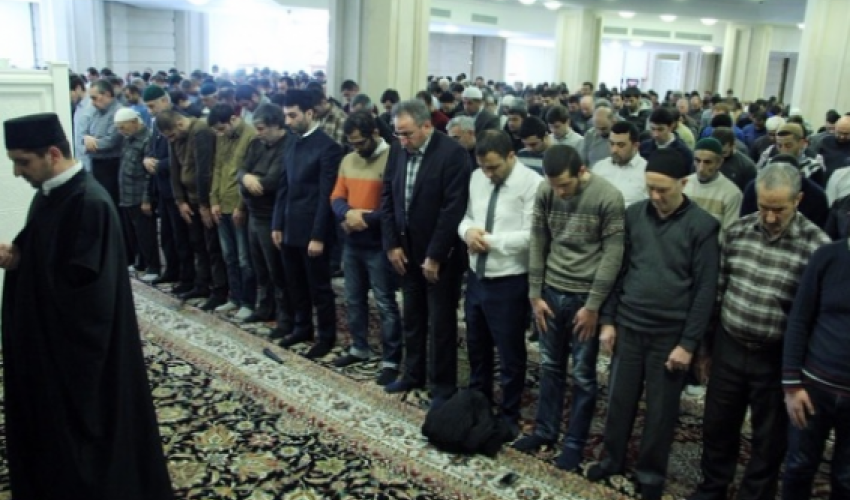
By Milikh Yevdayev
Our capital of Baku boasts an incomparably beautiful Heydar Mosque, the largest Mosque in the entire South Caucasus region. Named after Heydar Aliyev - the founder of the modern Azerbaijan and its third President (1993-2003) - the Heydar Mosque is not only known for its incredible beauty. Since its inception, the Mosque has also become a symbol of peace, tolerance and unity. As part of what is called the Year of Multiculturalism, proclaimed in Azerbaijan by President Ilham Aliyev, on Friday, January 15, 2016, a joyful crowd of religious, government and community leaders joined together to witness and participate in a groundbreaking experience -- a "unity prayer” of Shia and Sunni Muslims. Since then the Heydar Mosque has been holding joint Shia-Sunni prayers every Friday. The Sunni and Shia imams of the Mosque take turns in leading the prayers.
The Friday program is emblematic of a historical system of unusual tranquility between Azerbaijan’s Shias and Sunnis, as they have harmoniously lived, prayed and shared prayer space, for centuries in this country.
As we continue to observe ongoing bloody violence and confrontation between Shias and Sunnis in different parts of the world, this unity prayer is a strong message of peaceful coexistence and harmony, and a testimony to what is possible for the world.
Approximately 95% of Azerbaijan’s population is Muslim. Shias constitute around 75% of Azerbaijan’s Muslim population, Sunnis the remaining 25%. Yet what is most distinct about Azerbaijan’s Muslim society is that same recipe for harmonic diversity that works so well between Muslims, Jews and Christians in this country also applies to the two largest Muslim denominations representing the majority of Islam today.
As opposed to many other Muslim countries, a stark and confrontational Shia-Sunni division and sectarianism are non-existent in Azerbaijan. Shias and Sunnis not only pray together, they also marry each other, work with each other and enjoy a strong and unparalleled harmony. There are many, many children of Shia-Sunni mixed heritage. Our values of tolerance and mutual acceptance amongst religions and within religion have protected the country even when we faced war and occupation. They have also guarded our homeland from the violence permeating so many nations not far away.
Azerbaijan’s Muslim communities are led by Haji Allahshükür Pashazade, the Sheikh ul-Islam of Azerbaijan and the entire Caucasus region. Sheikh ul-Islam Pashazade is the world's only Muslim cleric giving both Shias and Sunnis fatwas according to their relevant madhab, reflecting Azerbaijan's harmonious Shia-Sunni mix. His first deputy is a Sunni imam. The Sheikh ul-Islam is recognized and respected as a religious authority not only in Azerbaijan and neighboring Georgia, as well as in the Northern Caucasus republics, which are part of the Russian Federation such as Dagestan, Ingushetia, Chechnya, Karachay-Cherkessia, and others, where the majority of the populations constitute Sunni Muslims.
The Jewish communities here - the Mizrahi Mountainous Jews as well as the Ashkenazi Jews - all celebrate a perfect freedom of identity and practice, as the Shia and Sunni Muslims enjoy this same harmony, just as the Orthodox, Catholic, Lutheran, LDS and Evangelical Christians do too. Here, the Sunni and Shia Muslims, the many families mixed between the two, along with Jews and Christians, come together in tranquility, as families, friends, classmates, coworkers and neighbors.
Many great Jewish and also Christian and Muslim leaders have spoken throughout the years of the immense opportunity for peace to be found and shared in the social landscape of Azerbaijan. Even just today, as I drank my tea in the quaint garden next door to the Mountainous Synagogue in Baku, I shared morning greetings with people representing each of the respective faiths; people passing by or stopping to enjoy a morning cup. In a stark contrast to the world not so far away overrun with interreligious conflict, here for us in Azerbaijan, acceptance and appreciation of the many cultural and spiritual differences is a part of daily and normal life.
I think of this a lot right now because my Jewish friends in the U.S. are struggling with the issues of tolerance as it has been brought to the forefront by the presidential campaign, and the continuing stream of violence in Europe and elsewhere.
I imagine how they must feel when they see violence in the streets and hear about constant multi-cultural struggles. What I can tell them is that we are shaping a new model of collective religious harmony here in Azerbaijan, one that does not reflect the bitter disputes going on in the rest of the world, one that I hope will be seen as a positive change for the world we live in.
When we discuss and find hope in Azerbaijan’s "Template for Dialogue and Peace” between religions, we can definitely learn many profound lessons for a better future by embracing and understanding how in Azerbaijan peace also exists within the diversity of the Muslim faith.
www.jewishjournal.com/mountain_jews_of_azerbaijan/item/azerbaijan_a_country_of_unusual_shia_sunni_harmony
www.ann.az
Similar news
Similar news
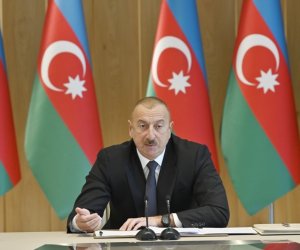
Political News
18:48
Azerbaijani President: By burning our flag, Armenians only showed their ugly qualities to the whole world
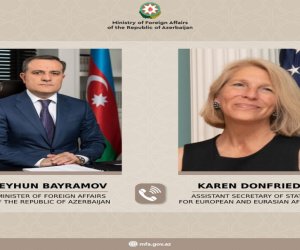
Political News
10:30
Azerbaijani FM, US Assistant Secretary of State discuss peace process between Azerbaijan and Armenia

























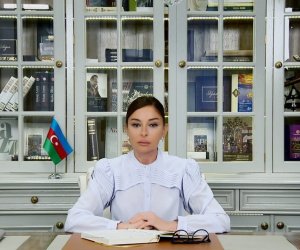
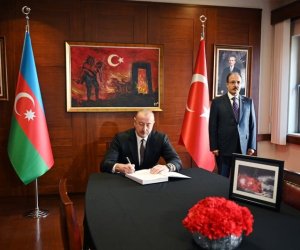


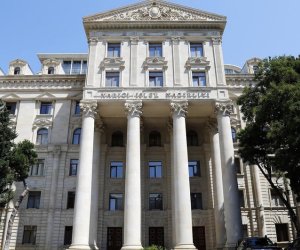
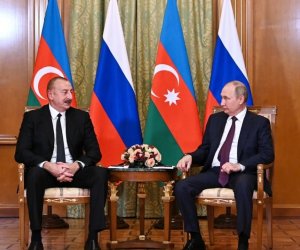



 Photo
Photo 



 Video
Video 

